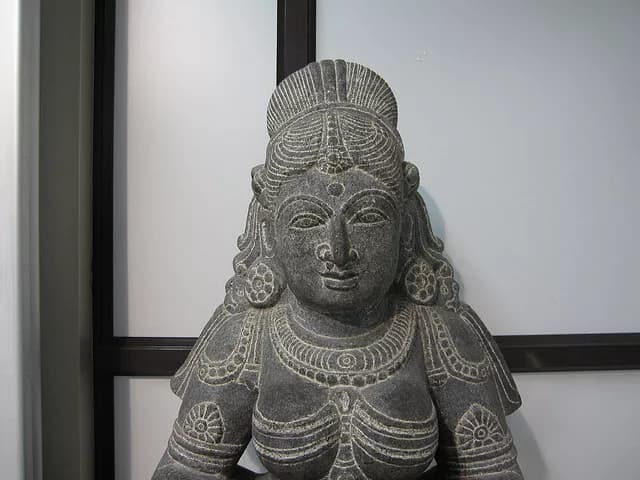
Is There a Scientific Basis for the Ancient Practice of Ayurveda?
Ayurveda, which translates to “knowledge-life,” originated in India and is considered the oldest healthcare system in the world. This ancient form of medicine involves specialized diets, oral medicines, ointments, lotions, cleansing procedures, massages, meditation, yoga, etc., and is generally considered a “wholesome” approach to health by its practitioners and followers. Modern medicine considers Ayurveda an alternative and complementary form of medicine.
The following are some diseases and conditions for which health benefits are attributed to Ayurvedic medicine, based on scientific research:
Osteoarthritis:
A few studies have reported that individuals found relief from osteoarthritis symptoms by using Ayurvedic medicines. In one study, the effect of Ayurvedic medicine was found comparable to that of glucosamine and celecoxib (pain medication used in arthritis). However, some participants were withdrawn from the study, as an asymptomatic rise was observed in one liver enzyme. The liver function was found to be normal, and the enzyme levels returned to normal upon drug withdrawal.
Plaque formation in teeth:
A randomized, controlled, double-blind, cross-over clinical trial was performed using 30 volunteers with different mouth wash agents. The results showed that Ayurvedic mouth rinse decreased the new formation of dental plaque better than a commercially available mouthwash.
Hemiplegia or paralysis on one side of the body:
A double-blind clinical study involving 18 hemiplegic patients suffering for six months to two years was conducted using an Ayurvedic medicine and massage procedures. A particular type of massage using medicated (Ayurvedic) rice varieties was performed on different groups of the patient. Patients’ muscle tones, muscle strength, the range of movement, reflexes, etc. were assessed by physiotherapists. A variety of rice known as Navarakizhi was found to be effective in improving symptoms in patients. However, this was a very small study and detailed studies with a large number of participants would be required to come to a meaningful conclusion.
Anxiety and social phobia:
A clinical study involving 72 patients with Generalized Anxiety Disorder (GAD) was conducted to compare the effects of an Ayurvedic medicine known as Manasamitra Vataka with an allopathic medicine used for treating panic attacks and anxiety disorders. Manasamitra Vataka was found effective in alleviating GAD and social phobia. A medicated Ayurvedic oil applied topically in combination with the Ayurvedic medicine was additionally able to reduce the daytime sleepiness associated with GAD.
Rheumatoid arthritis (RA):
Some clinical trials have demonstrated that Ayurvedic medicine could be effectively used for relief from symptoms of RA. In one study, an Ayurvedic medicine, Methotrexate (used for RA), and the combination of both were employed in a clinical trial. All three treatments proved effective against RA. However, the group that was treated with Ayurvedic medicine alone experienced the least adverse events.
Chemotherapy and radiation therapy-induced side effects:
Some studies have implied that Ayurvedic practices of “touch therapy” and “aromatherapy” could help alleviate discomfort following treatments for cancer and help patients cope better with their treatments.
Cancer treatment:
Experiments in mice have been conducted to show that certain Ayurvedic medicines could actually arrest cancer growth. However, not much is known about the effect of such medicines on humans. There is a general consensus that resorting to Ayurvedic treatment could potentially interfere with conventional treatment for cancer.
Headaches, pains and some other conditions:
Therapies involving soothing touch in an ailing patient, such as massages, have been shown to help with headaches and pains associated with fibromyalgia, Myofascial pain syndrome, nerve damage, and temporomandibular joint syndrome (TMJ). Meditation is recommended in Ayurveda and is known to influence parts of the brain involved in processing more memories and emotions. Yoga, also a part of Ayurvedic practice, is reported to help with Asthma and offer some protection against cardiovascular disease and insulin resistance.
Concerns:
Though preliminary results look promising, many clinical studies have been conducted with a small number of participants. Therefore, more research and clinical trials with a large number of participants will be required to prove the efficacy of Ayurvedic medicines.
The US Food and Drug Administration (FDA) has advised caution against using Ayurvedic products. These drugs do not go through the rigorous regulatory approval process prior to marketing and, therefore, consumers need to be vigilant.
One-fifth of US and Indian manufactured Ayurvedic medicines contain heavy metals like Lead, Arsenic, and/or Mercury. According to the FDA, all metal containing Ayurvedic products exceeded one or more standards of acceptable levels of daily metal intake. In fact, several products contained significant amounts of metal, between 100 to 100,000 times greater than acceptable limits.
The FDA also warns about products bought on the Internet since these are not regulated.
A word of caution: Please consult with your healthcare provider before initiating alternative therapies. Tell your healthcare provider about any complementary and alternative practices you use. Give them a full picture of what you do to manage your health. This will help your healthcare provider assess your clinical situation better. This will also help them take appropriate clinical measures to assist you. Full disclosure to your healthcare provider will help ensure coordinated and safe care.
Written by Mangala Sarkar Ph.D.
Related Articles
Test Your Knowledge
Asked by users
Related Centers
Related Specialties
Related Physicians
Related Procedures
Related Resources
Join DoveHubs
and connect with fellow professionals

0 Comments
Please log in to post a comment.